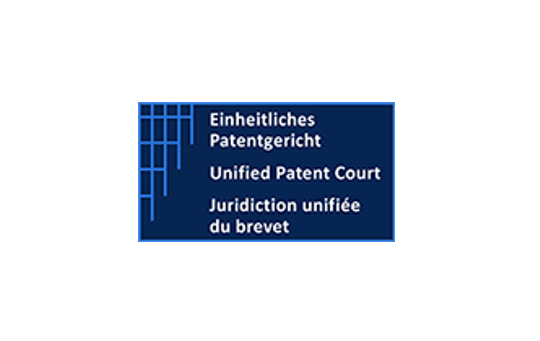News about the Unified Patent Court (UPC)
Recent facts:
20.03.2020 The German Bundesverfassungsgericht – BVerfG (Federal Constitutional Court) delivered its decision on the complaint against the German ratification of the Agreement on the Unified Patent Court (UPCA). The BVerfG declared that the Parliamentary Act of Approval to the Agreement on a Unified Patent Court to confer sovereign powers on the Unified Patent Court is void on the ground that the German Parliament did not vote with the required majority (2/3 according to the judgement). For more information click here.
20.07.2020 The UK made its final preparation to withdraw from the Unified Patent Court project and the withdrawal notification of ratification has been deposited with the Council Secretariat.
26.11.2020 The German Bundestag (federal parliament) voted on and approved the legislation for the Agreement on the Unified Patent Court and its Protocol on the provisional application. The approval was given by a majority of over two-thirds of the Bundestag’s members, a requirement which had been set by the Federal Constitutional Court in its decision published on 20 March of this year declaring void the earlier legislation passed in 2017.
18.12.2020 After the Bundestag, also the German Bundesrat (parliament of the sixteen federated States) voted on and approved (with the required two-thirds majority) the legislation for the Agreement on the Unified Patent Court and its Protocol on the provisional application.
The Ratification Law should now be forwarded to the Federal President for signature and the following publication in the Federal Law Gazette.
21.12.2020 The German Bundesverfassungsgericht – BVerfG (Federal Constitutional Court) confirms that on 18.12.2020 two constitutional complaints (cases 2 BvR 2216/20 and 2 BvR 2217/20) were filed against the draft legislation enabling Germany to ratify the Unified Patent Court (UPC) Agreement and its Protocol on Provisional Application.
The BVerfG may, as before in 2017, ask the President to refrain from signing the Law while it considers the constitutional complaints.
At the moment the identity of the plaintiffs and the grounds of the constitutional complaints are unknown; we can presume that at least one constitutional complaint has been filed by the Foundation for a Free Information Infrastructure (FFII), as it was calling on software companies all over Europe and the free/libre open source (FLOSS) community to urgently donate to crowdfund a constitutional complaint.
If the BVerfG does not promptly dismiss the cases, the BVerfG could require a considerable time (3 years as before?) to decide them, with a corresponding delay to the UPC project.
** *** **
According to some expectations (but only if the BVerfG promptly dismisses the complaints), once the German ratification procedure is complete, the final preparatory steps could be taken to set up the Unitary Patent Court in 2021 and thus the UPC could then start its work in 2022.
** *** **
Article 7(2) UPCA determines London as one of the three central division of UPC, together with Paris and Munich[1]. United Kingdom (London), France (Paris) and Germany (Munich) have been selected as they were the “three States in which the highest number of European patents was in force”.
As UK has officially quitted the UPCA, the section of the central division of the UPC with responsibility for life sciences, chemistry and metallurgy cases with seat in London will have to be moved.
The London section will not be replaced automatically with another seat, as this would need an amendment of the UPCA by unanimous agreement of all other Contracting Member States.
At the beginning and while a decision of the new location is taken, the competences of the London section might be temporarily distributed between the two remaining sections in Paris and Munich; this transitional solution should avoid further delay caused by negotiating on where a new section replacing the London one of the central division will be located.
So far, Italy (Milan), France and the Netherlands have reportedly expressed interest in hosting the replacement section and currently there are two main candidates to replace London as the seat of the central division of UPC: Milan and Amsterdam (bearing in mind that Paris or Munich could alternatively pick up the London Court’s competence on pharma patents under the reconfigured framework).
The Italian government on 03.09.2020 officially asked to move the central division of UPC from London to Milan.
On November 2017, EU foreign ministers picked Amsterdam as the new home of the European Medicines Agency (EMA), previously located in London, with Milan the closest runner-up; the decision was made by drawing lots after the two finalists ended up tied with the same number of votes. This precedent could have a bearing on the choice of the future seat of the central division of UPC which cannot be located in London anymore.
** *** **
Sources:
https://www.europarl.europa.eu/RegData/etudes/ATAG/2020/649575/IPOL_ATA(2020)649575_EN.pdf
https://www.europarl.europa.eu/thinktank/it/document.html?reference=IPOL_IDA(2019)596800
https://www.unified-patent-court.org/news/federal-constitutional-court-decision
https://www.unified-patent-court.org/news/uk-withdrawal-upca
https://www.unified-patent-court.org/news/upc-progress-german-ratification
https://www.epo.org/news-events/news/2020/20201126b.html
https://www.bundesrat.de/DE/plenum/bundesrat-kompakt/20/998/10.html#top-10
https://www.managingip.com/article/b1pslqt21vn3fn/new-upc-complaints-filed-in-germany
[1] The London section should hear cases relating to metallurgy, chemistry, including pharmaceuticals, and the life sciences; the Munich section will hear cases relating to mechanical engineering, lighting, heating, weapons and blasting; Paris will hear textiles, paper, construction and electricity cases.
MATTEO MACCAGNAN
© Studio Torta (All rights reserved)



